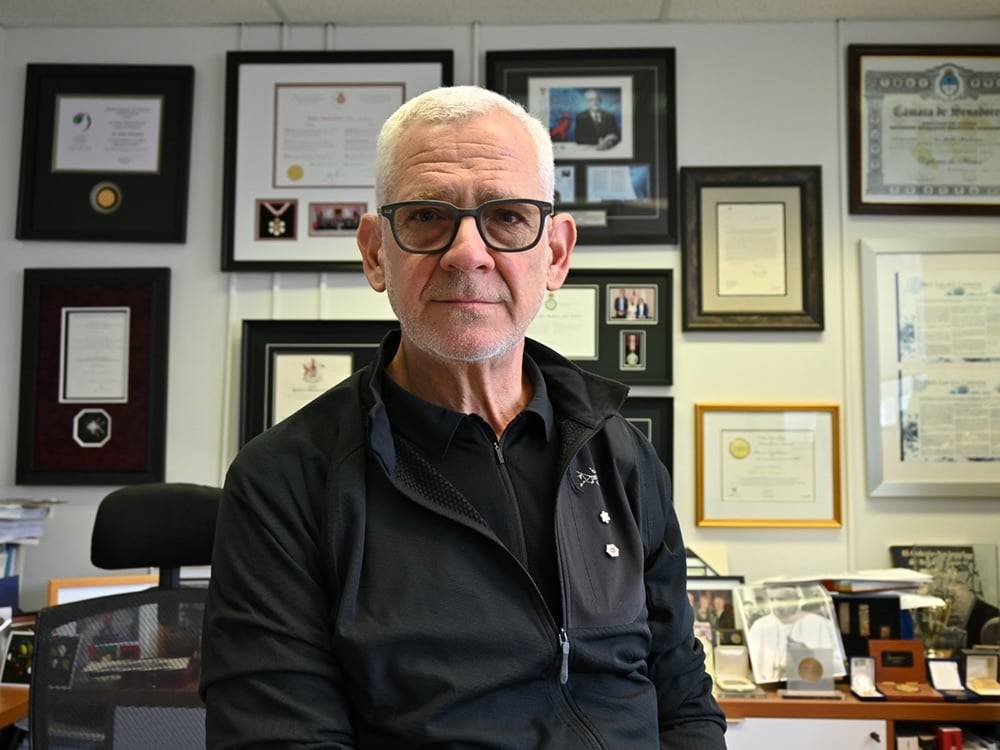Health
Canada Urged to Lead Global HIV Fight Amid US Withdrawal

The recent decision by the United States to reduce its involvement in the global fight against HIV has prompted calls for Canada to take a more proactive role in addressing the epidemic. As one of the leading nations in HIV research and treatment, Canada, particularly through initiatives in British Columbia, is well-positioned to make a significant impact in the battle against this virus.
Dr. Julio Montaner, a prominent researcher at the University of British Columbia and a key figure in the development of HIV treatment strategies, emphasizes that BC’s approach could serve as a model for effective intervention. He advocates for a comprehensive strategy that includes increased access to antiretroviral therapy and robust prevention measures.
BC’s Proven Strategy
British Columbia has made remarkable progress in reducing HIV infection rates. Data from the World Health Organization indicates that the province has achieved a significant reduction in new infections, thanks in part to the implementation of the Seek and Treat for Optimal Prevention of HIV/AIDS (STOP HIV/AIDS) program. This initiative focuses on testing, treatment, and providing community support, which has resulted in an estimated 90% decline in new infections since its inception.
The urgency for Canada to step up is underscored by the fact that approximately 38 million people worldwide are currently living with HIV. With the U.S. scaling back its role, international agencies and organizations are looking to Canada to fill the gap in funding and leadership.
Dr. Montaner notes that while the U.S. has been a historical leader in HIV research and funding, Canada can leverage its own successes to inspire global action. “Our experience in BC demonstrates that comprehensive care and community engagement can drastically change the trajectory of this epidemic,” he states.
The Global Impact of Reduced U.S. Support
The implications of the U.S. withdrawal extend beyond its borders. American financial support has been crucial for many countries in their efforts to combat HIV. The President’s Emergency Plan for AIDS Relief (PEPFAR) has funded billions of dollars in treatment and prevention efforts globally. As this funding diminishes, countries that rely heavily on U.S. aid may struggle to maintain their programs.
In light of this shift, Canadian policymakers are encouraged to increase their commitment to international health initiatives. This could involve enhancing funding for global health programs and supporting research that aligns with BC’s successful strategies.
The Canadian government has already made strides in this direction. In 2021, it pledged $1.5 billion over five years to the Global Fund, which aims to combat HIV, tuberculosis, and malaria. However, many advocates believe that this is only a starting point.
Dr. Montaner urges that Canada must act decisively and swiftly. “We have a moral obligation to step in and lead the way,” he insists. By investing in both domestic and international HIV efforts, Canada can not only save lives but also establish itself as a global health leader in the post-U.S. era.
The call for Canada to assume a larger role in the global HIV response is clear. With a proven track record in British Columbia and ongoing commitment to health initiatives, the country has the potential to make a profound difference in the lives of millions affected by HIV worldwide.
-

 Science3 months ago
Science3 months agoToyoake City Proposes Daily Two-Hour Smartphone Use Limit
-

 Top Stories3 months ago
Top Stories3 months agoPedestrian Fatally Injured in Esquimalt Collision on August 14
-

 Health3 months ago
Health3 months agoB.C. Review Reveals Urgent Need for Rare-Disease Drug Reforms
-

 Technology3 months ago
Technology3 months agoDark Adventure Game “Bye Sweet Carole” Set for October Release
-

 World3 months ago
World3 months agoJimmy Lai’s Defense Challenges Charges Under National Security Law
-

 Lifestyle3 months ago
Lifestyle3 months agoVictoria’s Pop-Up Shop Shines Light on B.C.’s Wolf Cull
-

 Technology3 months ago
Technology3 months agoKonami Revives Iconic Metal Gear Solid Delta Ahead of Release
-

 Technology3 months ago
Technology3 months agoApple Expands Self-Service Repair Program to Canada
-

 Technology3 months ago
Technology3 months agoSnapmaker U1 Color 3D Printer Redefines Speed and Sustainability
-

 Technology3 months ago
Technology3 months agoAION Folding Knife: Redefining EDC Design with Premium Materials
-

 Business3 months ago
Business3 months agoGordon Murray Automotive Unveils S1 LM and Le Mans GTR at Monterey
-

 Technology3 months ago
Technology3 months agoSolve Today’s Wordle Challenge: Hints and Answer for August 19









